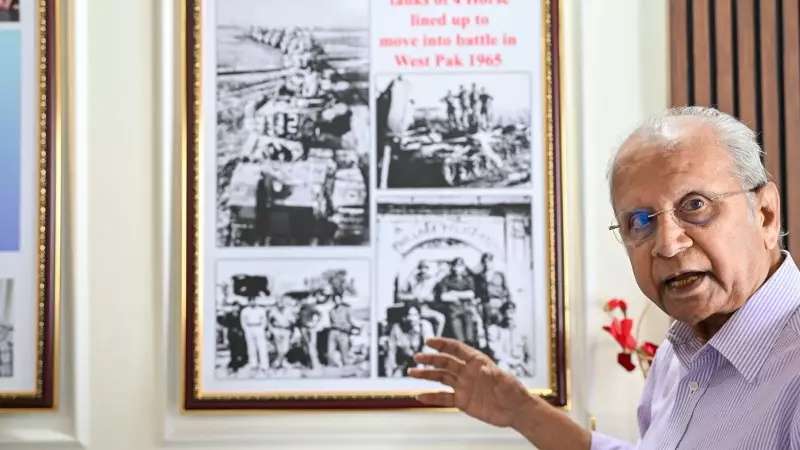
In the annals of India's modern history, few stories are as remarkable as that of Colonel (retired) H S Shankar, whose journey from a Bengaluru college backbencher to a war hero and technological innovator reads like a script from an inspirational film.
The Accidental Soldier
Born on March 8, 1943, in Bengaluru to H Srikantaiah and Rathnamma, Shankar had his roots in Holenarasipura in Hassan district. His father, a journalist, publisher, and social activist, had moved to Mysuru at a young age. The young Shankar, though studious, was famously part of the "last bench gang" in college, more known for playing cricket and football on Bengaluru streets than academic seriousness.
The turning point came in 1963 when the Mobile Services Selection Board (MSSB) arrived at his college to recruit engineering graduates for the Army during the India-China border conflicts. Shankar attended the interview merely to accompany his friends, attracted by the monthly stipend of Rs 400 offered during their engineering studies.
When selected, his family and friends opposed his joining the Army, citing concerns about the environment. His father, however, insisted he serve the country, setting Shankar on a path that would define his life.
From Battlefields to Technological Breakthroughs
After passing out from Officers Training Academy in Madras in February 1964, Shankar's military career took him to the frontline. He was posted in the Jalandhar and Patiala area, responsible for maintaining weapons, tanks, and communication systems.
His service spanned significant historical moments: occupying Pakistani territory for six months until the Tashkent Treaty of January 10, 1966, serving with the decorated Hodson Horse regiment handling centurion tanks, facing Chinese soldiers during the Sikkim conflict, and witnessing the surrender of 93,000 soldiers at Dhaka stadium in 1971.
One of his most remarkable achievements came in 1965 when he successfully integrated and upgraded the Tigercat ground-to-air missile system, enabling night operations. This innovation earned him the Vishisht Seva Medal and even attracted British interest in the technology.
Creating India's Electronic Voting Revolution
After joining Bharat Electronics Limited (BEL) in 1986 as deputy general manager in R&D, Shankar made his most famous contribution to Indian democracy. He suggested using Electronic Voting Machines (EVMs) to solve controversial trade union elections at BEL.
The idea impressed then Chief Election Commissioner Rudrabatla Venkata Surya Peri Sastri and reached Prime Minister Rajiv Gandhi through Defence Minister K C Pant. When Gandhi expressed concerns about booth capturing in states like Bihar and Uttar Pradesh, Shankar's team modified the software to allow only two votes per minute.
Despite delays following Rajiv Gandhi's assassination in 1991, the EVM underwent rigorous testing, with prominent leaders including George Fernandes and L K Advani personally verifying its security. Shankar oversaw the manufacturing of 1,50,000 EVMs at BEL, one of the largest orders in the PSU's history.
Building India's Defence Future
After retiring in 2003, Shankar co-founded Alpha Design Technologies Private Limited in Bengaluru with a vision to create a "mini-BEL." The company quickly made its mark by winning a bid to upgrade T72 tanks, beating established giants including BEL.
Today, Alpha Design Technologies employs 825 personnel, including 621 young engineers aged 22-29, with an annual turnover of Rs 401.03 crore and an order book of Rs 9113.21 crore. The company specializes in night-vision thermal sights, electronic warfare equipment, and has even exported weapons to Israel.
Their Skystriker suicide drones, developed in partnership with Israel's Elbit Systems, were used in Operation Sindoor following the Pahalgam attack, demonstrating the strategic importance of Shankar's post-retirement work.
At 82, Shankar continues to work as chief managing director while living with his wife on Bengaluru's Outer Ring Road. His journey from college backbencher to nation-builder stands as a testament to how unexpected paths can lead to extraordinary contributions to a nation's security and democracy.






